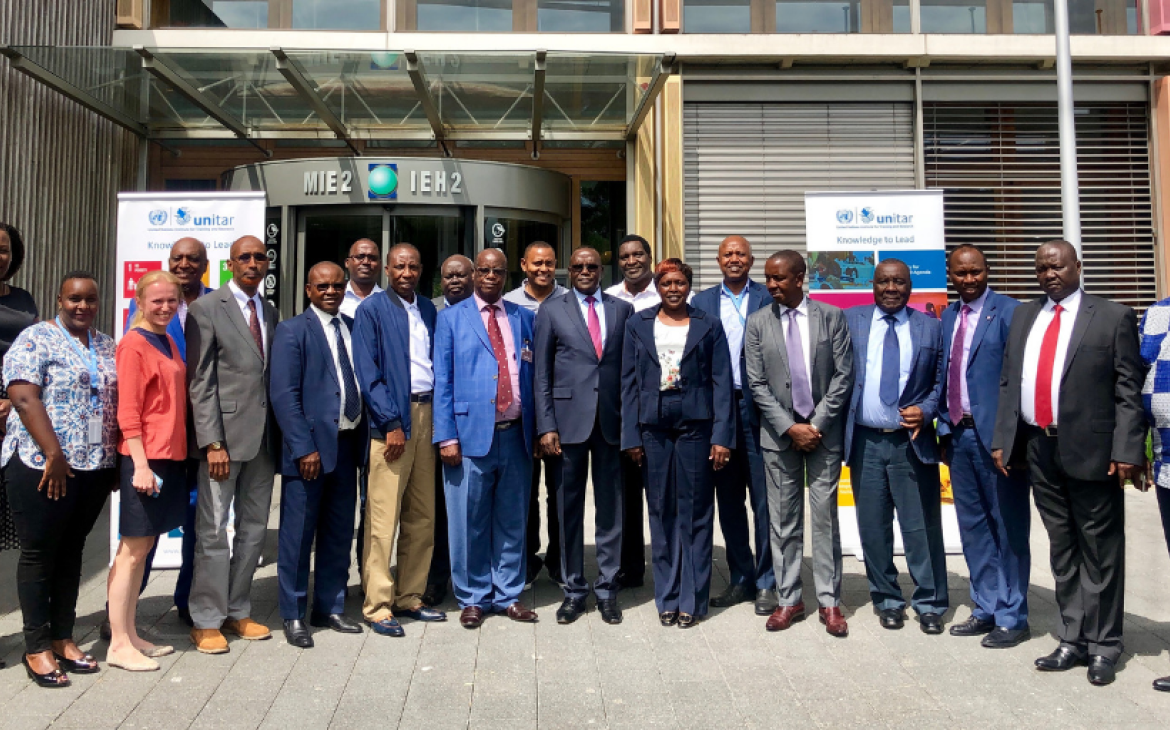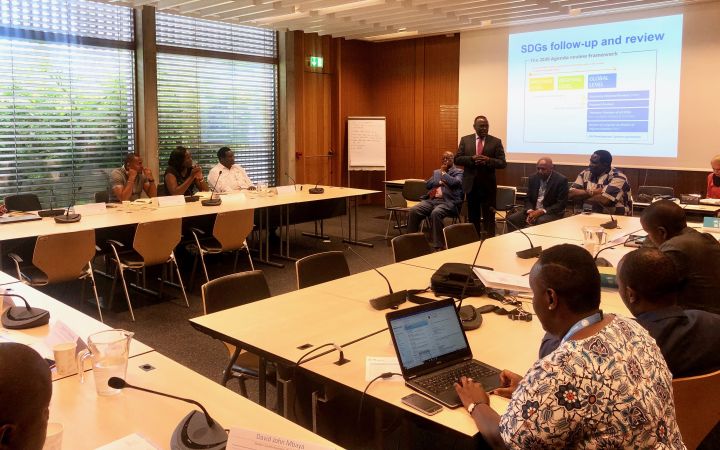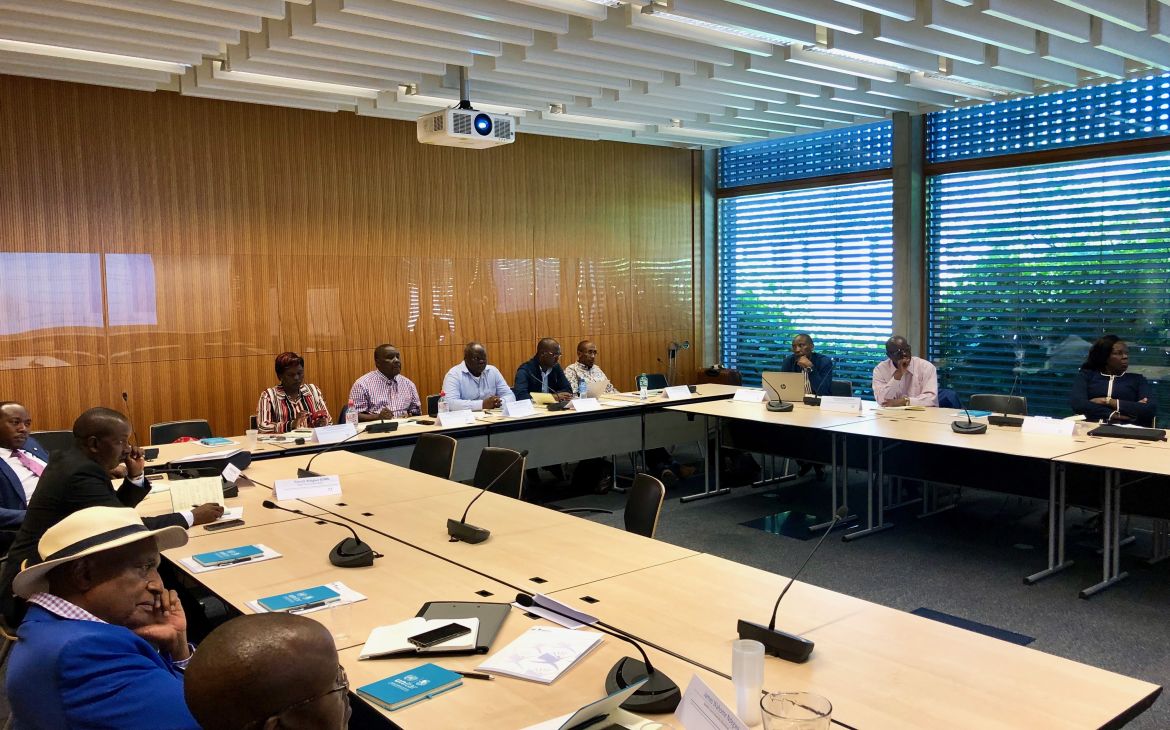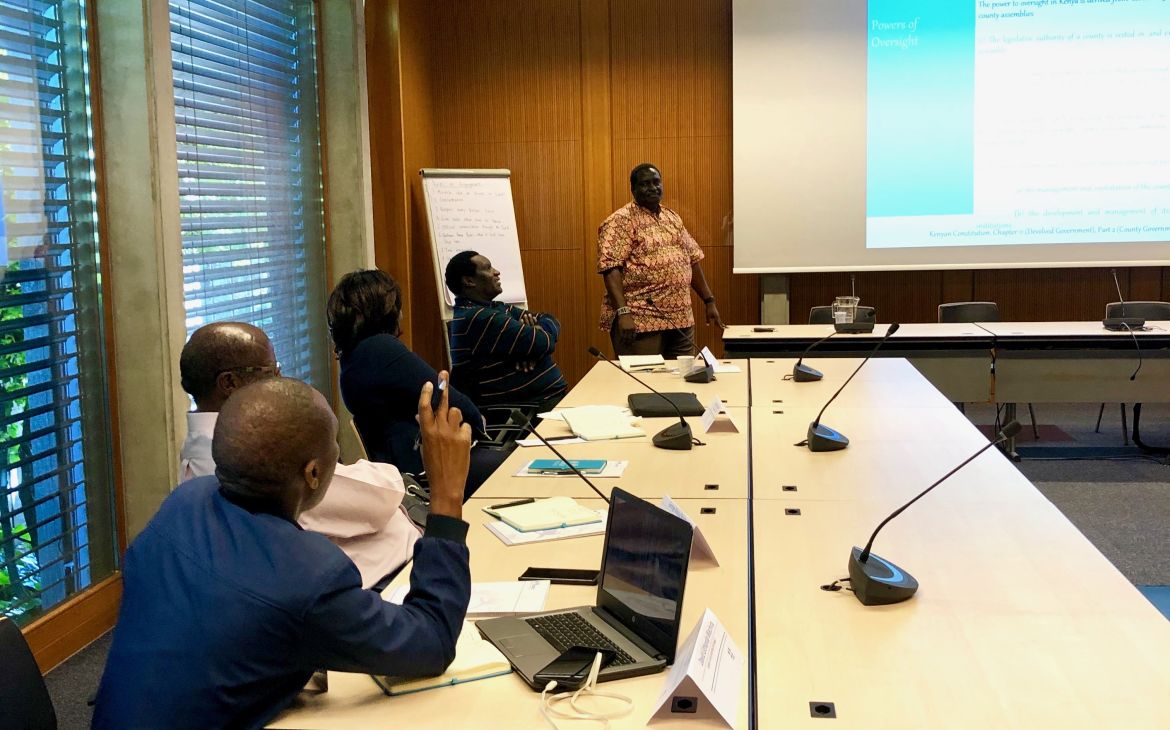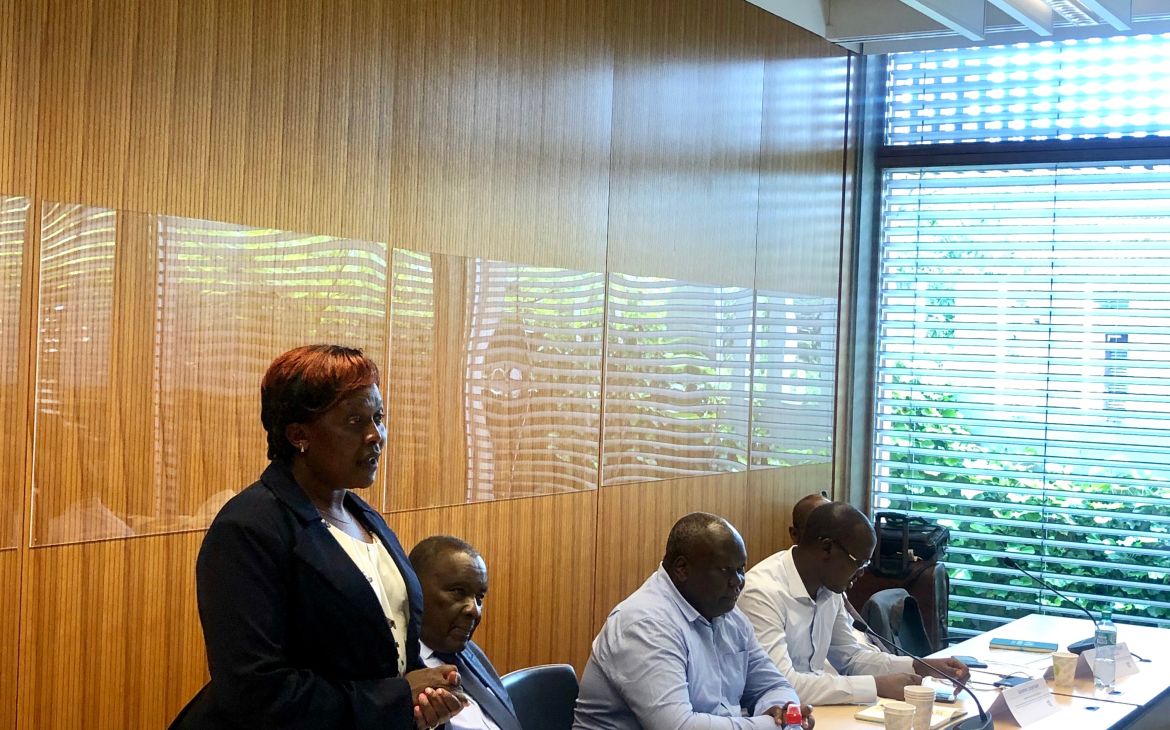17-19 June 2019, Geneva, Switzerland – Development sustainability is ever more crucial and important for developing countries that strive to attain long-term development and stability to be able to uplift the living standards of their populations. In Kenya, Speakers of the County Assemblies provide leadership on legislative processes to the Members of County Assemblies (MCAs), and are also the Chairpersons of the respective County Assemblies Service Boards. Therefore, it is important that they obtain requisite capacities to provide informed guidance to the MCAs in the legislative processes. The development of these capacities will ensure that legislation in the houses of Assemblies leads to (i) better policy outcomes, and (ii) the provision of concrete deliverables to constituents.
Guided by this vision, on 17-19 June 2019, the Division for Peace of the United Nations Institute for Training and Research successfully hosted a training workshop on “Parliamentary Monitoring and Oversight of Sustainable Development Goals” that promoted good governance practices among 16 Speakers of the County Assemblies of Kenya in their oversight and monitoring roles. The workshop was co-organised by UNITAR and the Centre for Parliamentary Studies of Kenya (CPST) as part of the project: “Promoting Good Governance by Building Capacity of Current and Future Parliamentarians” funded by the Ford Foundation.
The training focused on the sensitization of participants on the United Nations’ Agenda 2030 and the African Union’s Agenda 2063 and how the proper application of SDGs focused programming and planning allows for development sustainability as opposed to temporary successes without the capacity to sustain the positive results achieved. In the course of the training held at the UNITAR headquarters in Geneva, Switzerland, participants were introduced to the Sustainable Development Goals (SDGs), and encouraged to share their experience and knowledge on the application of the SDGs in oversight and monitoring work at the county level. The course also provided participants with tools and guidelines for better stakeholder engagement in the implementation of the SDGs with relevance to county-level governance responsibilities.
The class discussions primarily used Kenya as a case study. Participants engaged in the identification of the barriers to monitoring and oversight, and ways to successfully overcome them. Special attention was paid to the participants’ experience related to the challenges they encountered in the oversight and monitoring of resource allocation to marginalized communities. The disparities identified by the participants included economic diversity, uneven human development, differences in social structures and political representation, which all remain a significant policy challenge for the Kenyan government as well as other stakeholders.
Greater attention was put on the ways to empower the most marginalized groups (e.g. women and girls, rural dwellers, ethnic minorities, and people with disabilities, among others) and the importance of giving them a greater voice in decision-making processes. It was essential to examine who had been left behind and why. In this respect, the course participants were tasked with a major exercise of defining strategies and policy options that would address the dynamics of marginalization and regional disparities in Kenya to ensure a balanced social and economic underpinning that leaves no one behind. Sharing the results of their collective work, participants stressed that stakeholder engagement was a key driver in enhancing ownership of the SDGs and ensuring effective implementation and monitoring at all levels.
On the second day, the training was graced by a courtesy visit by H.E. Dr. Cleopa Kilonzo Mailu, Permanent Representative of the Republic of Kenya to the United Nations Office in Geneva and other International Organisations in Switzerland, who rated Kenya as a top advocate of Agenda 2030. He highlighted that the SDGs were well anchored in Kenya’s development blueprint, “Kenya Vision 2030” and emphasized the country’s efforts in advancing the two aforementioned Agendas in its national processes and development planning.
At the end of the training, all the participants stated that they had met the learning objectives of the training. Overall, the County Assembly Speakers indicated their increased capacities to engage in an effective and meaningful way with stakeholders in the implementation of the SDGs and, thus, to ensure a quicker progress towards their achievement. UNITAR is grateful to its partners and donors who have enthusiastically pooled their resources to make this project a reality and, in turn, a success.


